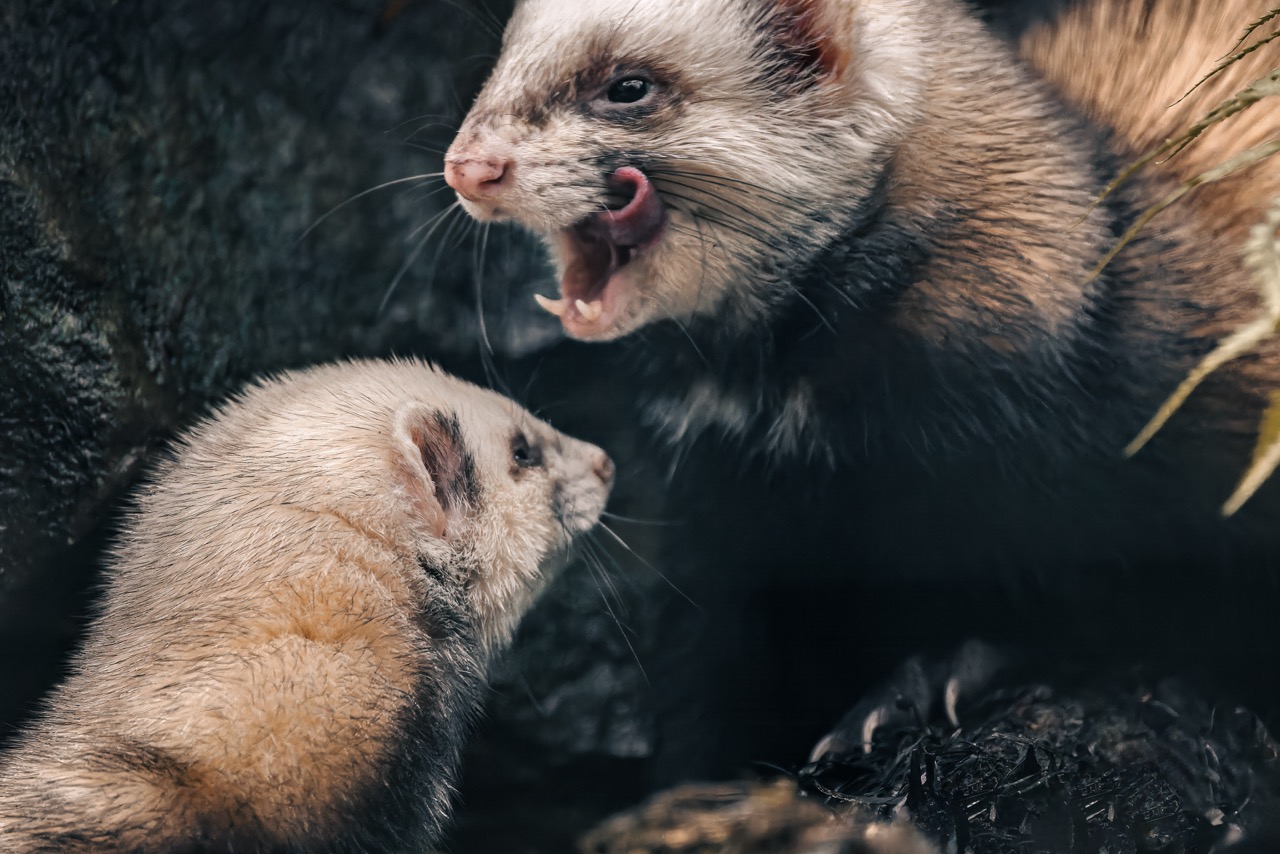Understanding the biological needs of ferrets in captivity is crucial for ensuring their health and happiness. Ferrets are highly energetic and intelligent animals, requiring specific care that aligns with their natural instincts and behaviors. As domesticated pets, they rely on their human caretakers to provide the right environment, nutrition, and mental stimulation. This article will discuss the essential nutritional requirements, ideal habitat conditions, social interaction needs, and health care practices necessary for maintaining the well-being of ferrets in captivity.
Essential Nutritional Requirements for Captive Ferrets
Ferrets are obligate carnivores, meaning their diet must primarily consist of animal-based proteins and fats. In the wild, they primarily hunt small mammals, and their digestive systems are adapted to process high-protein diets efficiently. In captivity, it is important to provide commercial ferret food specifically formulated to meet these nutritional needs. These diets typically contain around 30-40% protein and 15-20% fat, along with essential vitamins and minerals to support their overall health.
In addition to high-quality ferret kibble, ferrets can benefit from the occasional raw or cooked meat treat, such as chicken or turkey, to mimic their natural hunting habits. However, caregivers should avoid feeding them foods that are high in carbohydrates or sugars, such as fruits and grains, as these can lead to obesity and other health issues. Providing a varied diet not only supports their physical health but also helps to keep them mentally stimulated as they explore different textures and flavors.
Water availability is another critical aspect of nutritional care for ferrets. Ferrets require constant access to fresh, clean water to maintain hydration and support their metabolic processes. It is advisable to use a water bottle or heavy ceramic dish to prevent spills. Regular monitoring of their food and water intake can help identify potential health issues early, ensuring that they receive the nutrients necessary for a long and healthy life.
Ideal Habitat Conditions for Ferrets in Captivity
Creating an ideal habitat for ferrets is essential for their physical and mental well-being. Ferrets are highly active animals that require ample space to explore, play, and exercise. A multi-level ferret cage with various platforms, ramps, and tunnels can provide an enriching environment that mimics their natural habitat. The cage should be spacious enough for them to move around comfortably and equipped with bedding material that is safe and absorbent, such as fleece or hay.
Temperature and humidity levels are also vital factors when setting up a ferret habitat. Ferrets are sensitive to extreme temperatures, so it is crucial to maintain a comfortable environment, ideally between 60-70°F (15-21°C). Additionally, ensuring proper ventilation can help prevent the buildup of odors and reduce the risk of respiratory issues, which ferrets are prone to. Caregivers should also avoid placing the cage in direct sunlight or drafty areas, as ferrets can overheat or become chilled very quickly.
Ferrets thrive on vertical space and enrichment items, such as tunnels, hammocks, and toys, to keep them engaged and active. Providing safe chew toys can also help satisfy their natural instinct to gnaw. Regularly changing and rotating the enrichment items helps prevent boredom and encourages physical play and exploration, which are crucial for their overall health and happiness.
Social Interaction and Mental Stimulation for Ferrets
Ferrets are social animals that require consistent interaction with their human caretakers and other ferrets. Socialization not only helps to prevent loneliness and boredom but also supports their emotional health. Ferrets are known for their playful and curious nature, and they thrive in environments where they can engage in interactive play with their owners. Daily playtime outside of their cage, combined with regular handling and affection, fosters a strong bond and improves their overall quality of life.
In addition to social interaction with humans, ferrets benefit from companionship with other ferrets. If you have multiple ferrets, it is essential to introduce them gradually to ensure a harmonious relationship. They often engage in playful wrestling and chasing behaviors, which are critical to their development and social skills. However, supervision during playtime is necessary to prevent any aggressive interactions, as ferrets can occasionally display dominance behaviors.
Mental stimulation is as important as physical activity for ferrets. Puzzle toys and games that require problem-solving can keep their minds sharp and engaged. Additionally, incorporating training sessions using positive reinforcement techniques can help to reinforce good behaviors while providing mental challenges. Creating a stimulating environment helps to prevent destructive behaviors that can arise from boredom and ensures a happier, healthier ferret in captivity.
Health Care Practices for Maintaining Ferret Well-being
Regular veterinary care is paramount in maintaining the health of captive ferrets. Ferrets should undergo annual check-ups, including vaccinations and parasite prevention. Common health issues in ferrets include adrenal disease, insulinoma, and dental problems, which can often be managed more effectively with early detection. Caregivers should also be vigilant for any signs of illness, such as changes in appetite, weight, energy levels, or behavior, and seek veterinary advice immediately if any concerns arise.
In addition to medical care, dental health is an essential aspect of ferret well-being. Ferrets are prone to dental disease, so regular teeth brushing and providing dental chews can help prevent plaque buildup and gum disease. Caregivers should also schedule professional dental cleanings as needed, based on their vet’s recommendations. Maintaining good oral hygiene is crucial for preventing pain and infections, which can lead to more serious health issues.
Finally, spaying or neutering pet ferrets offers numerous health benefits, including reducing the risk of certain cancers and unwanted behaviors associated with hormonal changes. Responsible breeders and pet owners should consider these practices as part of their overall health care plan. With proper attention to nutrition, habitat, social needs, and health care, ferret owners can ensure their pets lead rich, fulfilling lives.
Understanding the biological needs of ferrets in captivity is essential for fostering their health and happiness. By providing proper nutrition, ideal habitat conditions, social interaction, and regular healthcare practices, ferret owners can create an environment that caters to their unique needs. As active and intelligent creatures, ferrets require a dedicated caretaker to meet their physical and emotional requirements. By doing so, we can ensure that these delightful animals thrive in a loving home.










